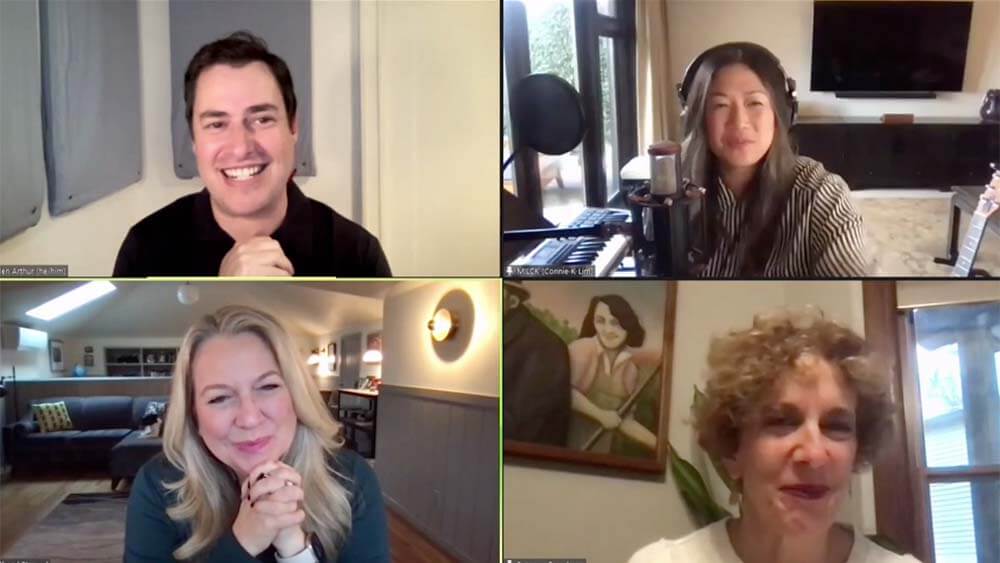
Ben Arthur (top left) moderates a Global Scientific Conference on Human Flourishing session featuring musician MILCK (clockwise from top right), educational psychology professor Suzanne Freedman, and author Cheryl Strayed.
I stumbled upon the announcement for the upcoming first annual Global Scientific Conference on Human Flourishing when I was doing research online for a Convene story. Held virtually Nov. 29-30 last year, the interdisciplinary conference was organized by the Templeton World Charity Foundation “to showcase the latest and most meaningful scientific advances in understanding how humans flourish across cultures.” Registration was free for plenary sessions that featured conversations with leading global researchers, policymakers, and advocates. I was intrigued enough by the name of the conference and just that brief description to sign up on the spot.
When the conference began, I chose to attend a session exploring a topic that felt universally understood as part of the human experience: forgiveness. The 40-minute session, “How Forgiveness Promotes Flourishing,” was a master class on how to hold a virtual session, not only because its multi-disciplinary approach kept things interesting, but because the conversation culminated in a song performed by singer, songwriter, producer, and activist MILCK, which she wrote in the two weeks leading up to — and specifically for — this conference session. (Watch the session recording below.)
The session was deftly moderated by Ben Arthur, the creator and host of Songwriter, a podcast that turns stories into songs — whose premise, he said in his self-introduction, is that all art is inspired by other art. You could see how that worked here: MILCK wrote the song in response to a letter from a reader included in the book Tiny Beautiful Things by Dear Sugar advice columnist and author Cheryl Strayed. Strayed kicked off the session by sharing her own path to forgiving an emotionally abusive parent, and then read that letter, along with her own moving response, from the book.
After Strayed spoke, Arthur had a conversation with Suzanne Freedman, Ph.D., an educational psychology professor at University of Northern Iowa who studies “the emotional mechanics and the science behind forgiveness,” he said. The transition was seamless as Freedman built upon the themes Strayed, who wrote the New York Times best-selling memoir Wild: From Lost to Found on the Pacific Crest Trail, touched upon, sharing her own academic research. Next came MILCK’s song, which, although it had the potential to feel forced, was the piece de resistance.
True, forgiveness is a compelling enough subject on its own that would resonate with almost anyone, but the session included all the elements to engage the audience, including:
- An adept moderator with experience interviewing others, who was curious, and helped to bring out the best in the speakers without shining the light on himself. Arthur may not have had expertise on the subject of forgiveness, but he is experienced in the craft of telling a story.
- Two speakers from different backgrounds who provided an interdisciplinary approach to the topic.
- Breaking up the session with views of just the speaker on the screen and then periodic views of all the speakers on the screen, so the audience could see their reactions to what others have said — or sang.
- A feeling of anticipation. Arthur had said at the beginning that the audience was in for a treat. While you can’t end every session, in person or virtual, with a beautiful and inspired song that touches the heart and ties everything together, just adding something that is culturally meaningful — like a painting or work of art or even a comic strip that speaks to the topic — can drive your message home.
What else did the Templeton World Charity Foundation do right? It made the sessions available for participants to view on demand after the event — and for the general public on YouTube.
How Forgiveness Promotes Flourishing
Michelle Russell is editor in chief of Convene.
